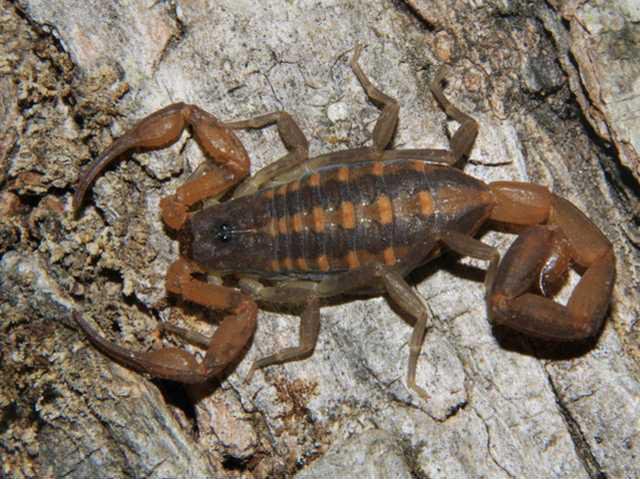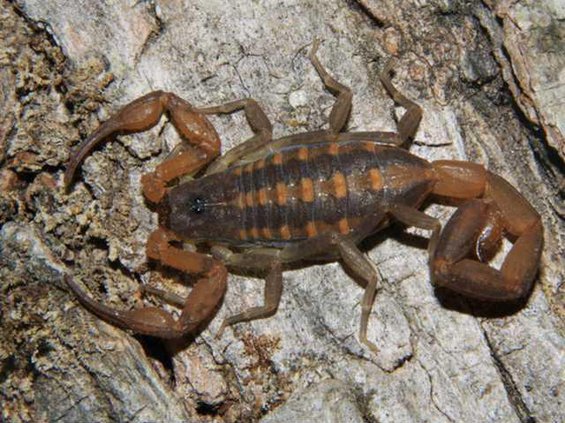Comedian, songwriter and Florida native Jim Stafford started his career in the mid-1970s with a song called “Spiders and Snakes,” which listed those critters that many people don’t like. Another arachnid surely on the list is the scorpion.
Liberty County Extension agent Robert Bell said most people don’t realize scorpions are common in this area. They don’t see them because they’re nocturnal, he said. On the chance occasion residents find one as an uninvited house guest, and the normal reaction is over-reaction.
“We’ve always had scorpions,” he said, naming the two scorpions common to South Georgia: the striped scorpion and the striped-bark scorpion. “There are more than 1,500 species of scorpion. Usually, the smaller ones are the ones most deadly, but ours are not. Their sting is more like a bee sting.”
Bell said local residents who are allergic to bee stings should seek medical help if stung by a scorpion. He said the most venomous scorpion in the U.S. is the Arizona bark scorpion, which is common to the desert Southwest. Like Georgia’s scorpions, Arizona bark scorpions are usually 2-3 inches long, he said.
He said scorpions come inside homes searching of food, which includes soft-body insects, spiders and other scorpions. Because scorpions also are arachnids, he said you can control them the same way you control spiders.
Homeowners can treat the outside and inside of their homes with a pesticide that includes the chemicals bifenthrin, cyfluthrin or permethrim, he said.
Better yet, he said ensure the house is sealed tightly around windows and doors and under sinks and toilets where insects are likely to enter. Also, he said people living near wooded areas should clean up trash, excessive pine straw and wood debris, the favorite habitat for striped scorpions.
Red-cypress mulch around flowers and ornamental shrubs works as a natural repellent for scorpions and other pests, Bell added.
“If you were to shine a black light on a scorpion, you’d find that it glows in the dark,” Bell chuckled, admitting most people might not want to look for them. “We don’t have an infestation of scorpions here. Usually, when I get a call, it’s someone who has seen one or two scorpions.
“The rainy weather has brought some of them inside, but not because they’re trying to get away from the moisture. As I said, they’re following their food sources, which the wet weather has caused to come inside. That’s why they serve a purpose in the environment — they eat other insects.”
Scorpions too often become uninvited house guests


Sign up for our e-newsletters